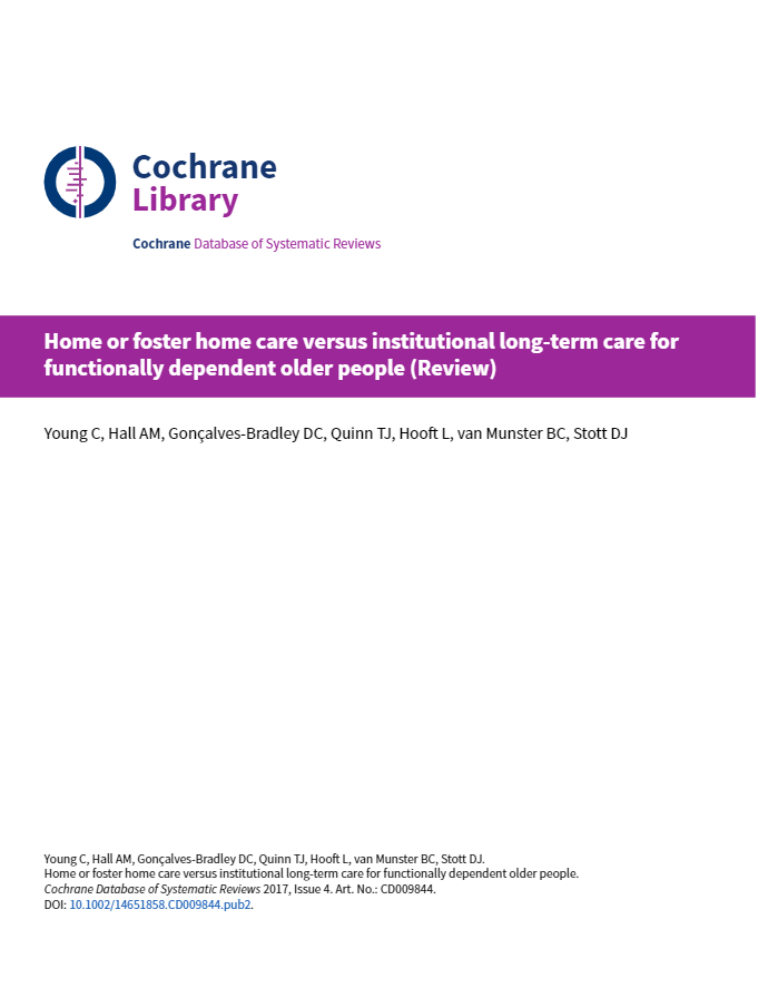Home or foster home care versus institutional long-term care for functionally dependent older people
This article attempts to establish whether dependent older people benefit from enhanced long-term home care services compared with placement in a long-term care institution. It also aimed to determine whether enhanced home care affects informal caregivers.
Author: Camilla Young, Amanda M Hall, Daniela C Gonçalves-Bradley, Terry J Quinn, Lotty Hooft, Barbara C van Munster, David J Stott
Publication Date: April 3, 2017
Description: Background: Changing population demographics have led to an increasing number of functionally dependent older people who require care and medical treatment. In many countries, government policy aims to shift resources into the community from institutional care settings with the expectation that this will reduce costs and improve the quality of care compared.
Objectives: To assess the effects of long-term home or foster home care versus institutional care for functionally dependent older people.
Search methods: We searched the Cochrane Central Register of Controlled Trials (CENTRAL) via the Cochrane Library, MEDLINE, Embase, CINAHL, and two trials registers to November 2015.
Selection criteria: We included randomised and non-randomised trials, controlled before-after studies and interrupted time series studies complying with the EPOC study design criteria and comparing the effects of long-term home care versus institutional care for functionally dependent older people.
Data collection and analysis: Two reviewers independently extracted data and assessed the risk of bias of each included study. We reported the results narratively, as the substantial heterogeneity across studies meant that meta-analysis was not appropriate.
Authors' conclusions: There are insufficient high-quality published data to support any particular model of care for functionally dependent older people. Community-based care was not consistently beneficial across all the included studies; there were some data suggesting that community-based care may be associated with improved quality of life and physical function compared to institutional care. However, community alternatives to institutional care may be associated with increased risk of hospitalisation. Future studies should assess healthcare utilisation, perform economic analysis, and consider caregiver burden.
Access: Free
Keywords: community health services, disabled persons, aged, quality of life, activities of daily living



